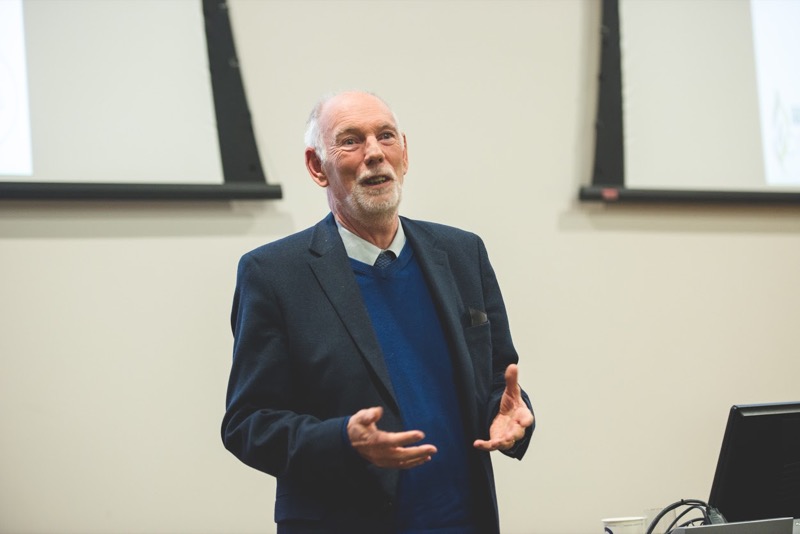Trinity Welcomes Transformative Chemist
Posted on: 16 March 2015
Professor Karl Wieghardt, the internationally renowned inorganic chemist, was welcomed to Trinity College Dublin to deliver the 2015 Cocker Lecture. Among his many awards are the Royal Society of Chemistry’s Centenary Medal, the American Chemical Society’s Award in Inorganic Chemistry, and the Wilhelm-Klemm Prize.
Professor Wieghardt, the founding director of the Max-Planck-Institut für Bioanorganische Chemie (1994 – 2010), spoke enthusiastically about how progress in the field stemmed from the days of trailblazer Alfred Werner, who is referred to as the Founder of Coordination Chemistry.

Professor in Chemistry at Trinity, Sylvia Draper, said: “This fascinating, historical account of Alfred Werner’s celebrated paper of 1910, revealed the character of the man who took scant information to systematically define an entirely new branch of chemistry. On measuring the charge, elemental composition and chirality of a series of compounds he determined that the metal coordination geometry was octahedral. In a stroke of genius (or good fortune!) and without any of the benefits of later theories and techniques, he undertook investigations on the one complex system in which his observations were valid – Cobalt(III). It is clear that his co-workers were gifted experimental researchers and that their supervisor left no room for self-doubt!”
The Cocker Lectures commemorate the life and work of Professor Wesley Cocker, who held the Chairs of General Chemistry and University Professor of Chemistry in Trinity College Dublin until 1978. He was responsible for introducing spectroscopic techniques in the elucidation of stereo-chemical transformations, not only in the College but in Ireland. He was proud of his Lancashire roots, and was a devout Methodist with a wry sense of humour. It was wonderful to see his daughter Katharine Given and her husband at the event.
Dr Mary Carson and Professors Brian McMurry and David Grayson were all appointed as young lecturers during Professor Cocker’s tenure as Head, and this legacy in the Organic and Medicinal Chemistry Discipline is still very much alive.
